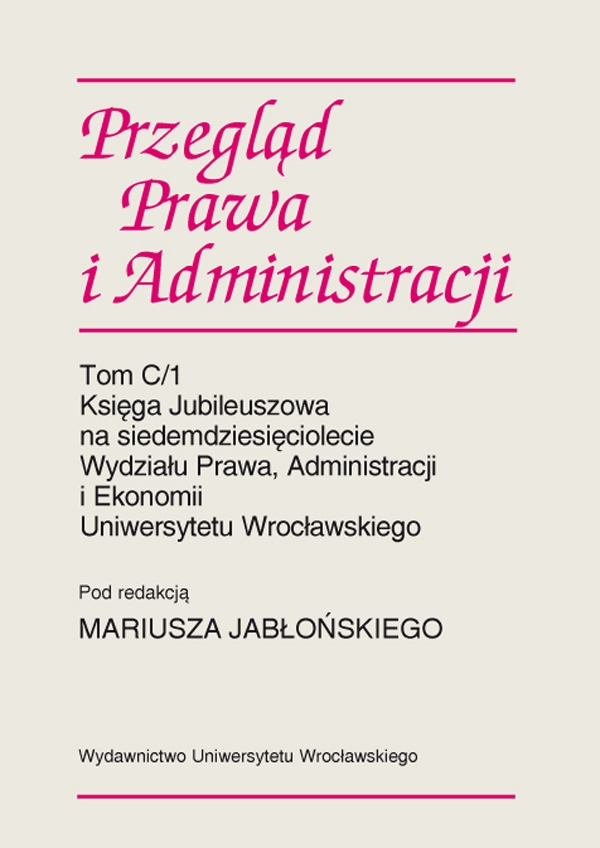

Artykuły archiwalne

TWO UNUSUAL CONCEPTS OF A LEGAL NORM AND THE RISK
RELATED TO AN EXTERNAL INTEGRATION OF LEGAL SCIENCE
The essay presents two theoretical concepts of a legal norm, termed as a non-linguistic and an expressive one. Both have in common an attempt to separate specifically legal issues related to norms from traditionally distinguished research areas of linguistics, i.e. semantics and syntax. The aim of both concepts was to solve one of the most troubling problems of analytical legal philosophy in the 20th century, which was a question concerning the applicability of a classical logic a propositional logic to linguistic utterances taking a form of norms. The authors of the analyzed conceptions — some minor differences between them notwithstanding — were by principle offering a similar solution to this problem: they located norms in a domain of facts deeds, regulatory acts and attributed to the language a role of communicating those facts. This solution was supposed to correspond with an employment of deontic logics to analyses of legal texts acts of communicating norms. The article indicates that these theoretical concepts are significant for the so called external integration of legal science — the integration with broadly conceived logic, including owing to some internal distinctions introduced a pragmatic branch of logic. Nevertheless, for a legal scholarship itself such theoretical proposals may have some negative implications as well. Namely, they may disintegrate the linguistic and methodological consistency of research problems of legal science; and in a sphere of professional legal practice they may counteract a coherence both in solving legal questions and justifying such solutions. This leads to a more generalized thesis: the external integration of legal scholarship, when too far-reaching, when exceeding a conventional dimension of a language of science, is usually done at the expense of the internal integration the autonomy of this scholarship. Yet for the legal scholarship and professional legal practice, because of the unique social roles they play, the internal integration is of a special importance. Cautiousness of legal science in the external integration with a scientific surroundings is highly recommended not only when regarding potential links with a classical logic. A similar risk is connected to alternative directions of external integration, for instance to the studies of law inspired by findings of contemporary humanities, which is proposed by so called postanalytic account to legal scienceporary humanities proposed within the framework of the so-called “postanalytical” approach.